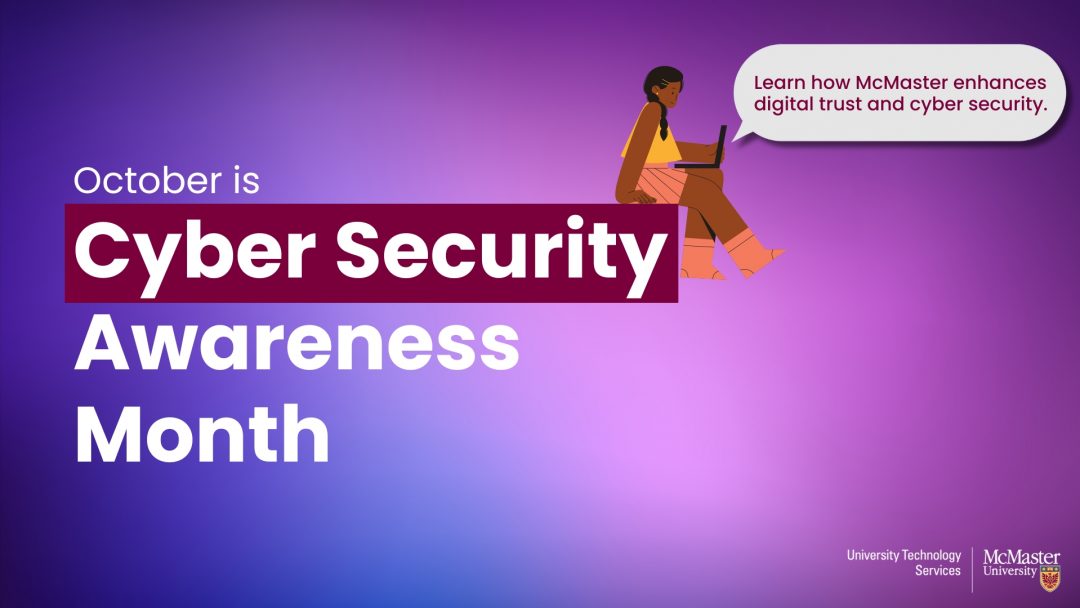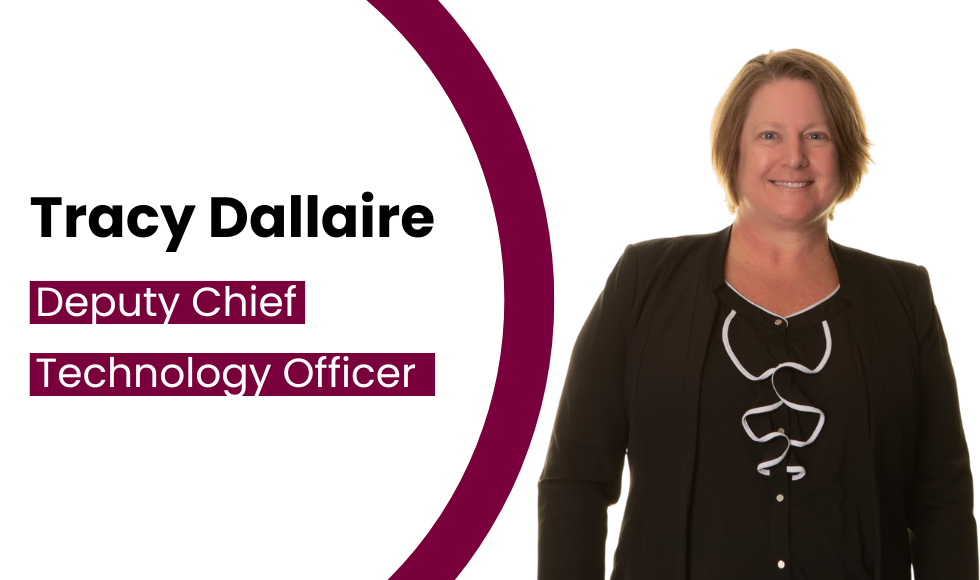Enhancing Digital Security: National Cyber Security Awareness Month 2024

October marks National Cyber Security Awareness Month (NCSAM), a significant event established in 2004 by the U.S. Department of Homeland Security and the National Cyber Security Alliance. The initiative aims to raise awareness about the importance of cyber security and to promote safer online practices.
NCSAM at McMaster University
At McMaster, the University Technology Services (UTS) team has been actively participating in NCSAM for the past thirteen years. This involvement underscores the university’s commitment to fostering a secure digital environment for its community. Cyber security is a shared responsibility, and McMaster emphasizes that everyone has a role to play. Simple actions such as reporting suspicious emails, keeping software up to date, and using strong, unique passwords can significantly enhance security.
Phishing, the leading method for cyber-attacks, remains a critical focus. UTS has established an inbox for reporting suspicious messages, encouraging the community to forward any dubious emails to is-spam@mcmaster.ca. This proactive approach helps in identifying and mitigating potential threats.
Throughout October, McMaster will be sharing tips, information and resources on cyber security through social media.
RESOURCES
Student Connection Panel Event
Location: Virtual (Microsoft Teams) | Open to students from across the country.
Join us for an engaging panel event where you’ll hear directly from students, the next generation of cyber security professionals. Students from the University of Toronto and McMaster University will share their hopes and fears as they step into the field of cyber security, offering a fresh perspective on the opportunities and challenges that lie ahead.
Discover how this generation views the evolving landscape of cyber security and what drives their passion. Learn about the exciting cyber security initiatives students are involved in and explore how educators and administrators can better support and nurture their enthusiasm for cyber security.
Don’t miss this chance to gain valuable insights and be inspired by the future leaders of cyber security!
Access the ‘Get Cyber Safe’ Resources
Did you know the Government of Canada created a Get Cyber Safe national awareness campaign with resources and information to enhance your cyber fitness. Check it out today!
Are you Really Cyber Secure?
McMaster, students, staff, faculty and researchers can empower themselves by taking the Information Security Training module, available on Avenue to Learn.??
The training addresses important topics like email phishing, passwords, multi-factor authentication, and data storage, and includes specialized lessons for researchers, and faculty/staff who work with credit cards.
Developed using resources from the Government of Canada’s cybersecurity program and in consultation with various partners across campus. the training is self-guided and can be completed at your own pace.
“Cybersecurity is a shared responsibility, and we encourage every member of the McMaster community to join us in fostering a culture of cybersecurity awareness on campus,” said Tracy Dallaire, Director of Information Security Services.
Take a swim in McMaster’s Phish Bowl
Phishing is a type of online attack in which an attacker — using both technological and psychological tactics — sends one or more individuals an unsolicited email, social media post, or instant message designed to trick the recipient into revealing sensitive information or downloading malware.
McMaster’s Phish Bowl website provides information about Phishing prevention, as well as examples of recent Phishing campaigns at McMaster.
Secure your M365 Account: Clean Up Your Inbox
A clean inbox allows you to efficiently manage your communication and prioritize important emails, reducing the likelihood of missing security alerts or time-sensitive requests, but there are other reasons to review old messages:
- Emails often contain sensitive information, such as personal data, or confidential documents. Keeping your inbox clean by deleting or archiving old emails can help prevent data or identity theft in case of a breach.
- A cluttered inbox makes it harder to spot phishing emails. By regularly cleaning your inbox, you can focus on legitimate messages and be more vigilant in identifying suspicious emails.
Stay Safe…Sign up to our ‘Byte Size’ Newsletter!
Related News
News Listing

Innovation Meets Leadership: McMaster and Cisco Spotlight Women’s Health and Technology
News Category
November 6, 2025

October 1, 2025

